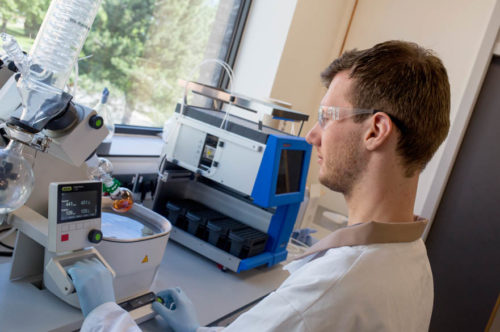Opis tego kierunku w języku polskim znajdziesz tu>>
https://studiawanglii.pl/courses/symulacja-edukacji-medycznej-i-opieki-zdrowotnej-pg-cert/
COURSE OVERVIEW
Combine your passions for health and education with our Higher Education Academy (HEA) accredited PGCert focusing on simulation in medical and healthcare education. Equip yourself to become a leader of the future in this specialised field.
Simulation-based education in health professions is growing. This PGCert will give you the opportunity to study those principles specific to teaching and learning using simulation, irrespective of the resources available. A broader holistic view of education, exploring curriculum design and the socio-cultural context of education, completes the programme.
You’ll benefit from the inter-disciplinary nature of the course, attracting applicants from across the range of healthcare professions including medicine, nursing, midwifery and paramedicine.
By both participating in and facilitating sessions in our high fidelity simulation suite, in the School of Medicine, you’ll develop an appreciation of all the elements that contribute to successful simulation based learning. You’ll engage in personal reflective activities, as well as attend formal teaching, giving you the theory underpinning the practice.
On completion of the PGCert you may wish to continue your studies and progress to the full Masters Award in Medical and Healthcare Education.
CAREERS
This PGCert will give you the tools to implement simulation based learning in your workplace. It’ll help your career path in education alongside clinical practice, enhancing your role in your team and enabling you to make a real difference.
MODULES & ASSESSMENT
-
Philosophies of Medical and Healthcare Education
Engage with fundamental questions concerning the aims, values and outcomes of education, within your sphere of practice. You’ll be encouraged to reflect on your role within the educational process and how your personal aims and values might influence your practice. You’ll explore incidences of when policy and practice are misaligned and the practical implications of this within your field, drawing on your understanding of educational theory to propose solutions. Face-to-face delivery will be across 5 workshops with further complementary resources and activities available online. Distance learners will have further resources and activities online which will be complimented with 5 webinars. The workshops and webinars will cover values in education, curriculum design, the hidden curriculum, evaluation of education and lifelong learning. The assignment consists of two parts; submission of a poster, reflecting on how an educational thinker has influenced your practice and submission of essay, exploring an element of the ‘hidden curriculum’, the potential effects of this on your students, and suggestions for how this can, or should, be addressed. The summative assessment for the module is in two parts; a 15-minute presentation followed by a 15-minute oral defence of the research proposal and the completion of the faculty’s stage 1 ethics form. -
Principles of Simulation in Medical and Healthcare Education
Developed for those involved in, or interested in, developing and leading simulation-based learning within medical and healthcare education. Delivered using blended learning, you’ll be encouraged to critically explore the evidence base behind the use of simulation in medical education, before attending 2 workshops based in our state-of-the-art Simulation Suite here at Anglia Ruskin University, Chelmsford Campus. During these workshops you’ll experience simulation sessions as both a learner and facilitator, allowing you to see how the theoretical concepts behind simulation are applied in practice. You’ll be supported through the design and development of a simulation-based learning activity for your specific context and, in a final follow-up workshop, you’ll lead a session with your fellow students acting as co-facilitators and learners. Assessment for this module consists of the design and development of the participant-led simulation session, including; a session plan with a rationale for the learning theories chosen to underpin the design and justification for its need within their sphere of practice; an observation of the delivery of the participants planned session, with peer and tutor feedback; a critical evaluation and reflection on the design and delivery of their simulation-based learning activity, highlighting the learning you’ve taken from this process and recommendations for your future development within this field.
Assessment
Your assessment will be constructively aligned with your teaching practice. You’ll be both formatively and summatively assessed in each module through; lesson plans, teaching observations, reflective essays and poster presentations




















